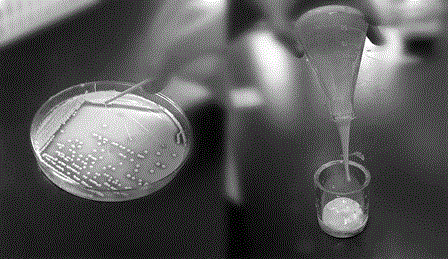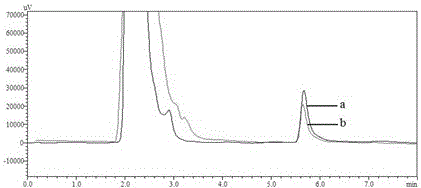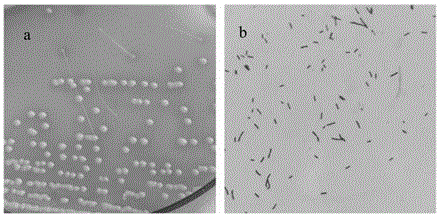Exopolysaccharides-producing lactobacillus plantarum for adsorbing monophthalate effectively
A technology of phthalic acid monoester and Lactobacillus plantarum, which is applied in the field of exopolysaccharide-producing Lactobacillus plantarum to achieve good adsorption capacity
- Summary
- Abstract
- Description
- Claims
- Application Information
AI Technical Summary
Problems solved by technology
Method used
Image
Examples
Embodiment Construction
[0023] 1. Sample source
[0024] Functional lactic acid bacteria screening samples included Sichuan traditional family-made kimchi, fermented dairy products, fermented meat products and animal manure, etc. The strain in this case was derived from Sichuan traditional family-made kimchi. Sichuan kimchi is a traditional fermented vegetable product with Chinese characteristics, which is rich in lactic acid bacteria.
[0025] 2. Isolation and screening of lactic acid bacteria from different samples
[0026] Take different samples such as kimchi, fermented milk, animal manure, etc., and homogenize them in a sterile homogeneous bag at a ratio of 1:10. Take 1 mL of the homogenate and add 9 mL of sterile saline for 10-fold gradient dilution, and take the appropriate dilution 100 μL of sample was coated on MRS-CaCO 3 Medium plates, cultured at 37 °C for 24 h to 48 h. Pick colonies with calcium-dissolving circles and typical colony characteristics of lactic acid bacteria, perform mul...
PUM
 Login to View More
Login to View More Abstract
Description
Claims
Application Information
 Login to View More
Login to View More - R&D
- Intellectual Property
- Life Sciences
- Materials
- Tech Scout
- Unparalleled Data Quality
- Higher Quality Content
- 60% Fewer Hallucinations
Browse by: Latest US Patents, China's latest patents, Technical Efficacy Thesaurus, Application Domain, Technology Topic, Popular Technical Reports.
© 2025 PatSnap. All rights reserved.Legal|Privacy policy|Modern Slavery Act Transparency Statement|Sitemap|About US| Contact US: help@patsnap.com



